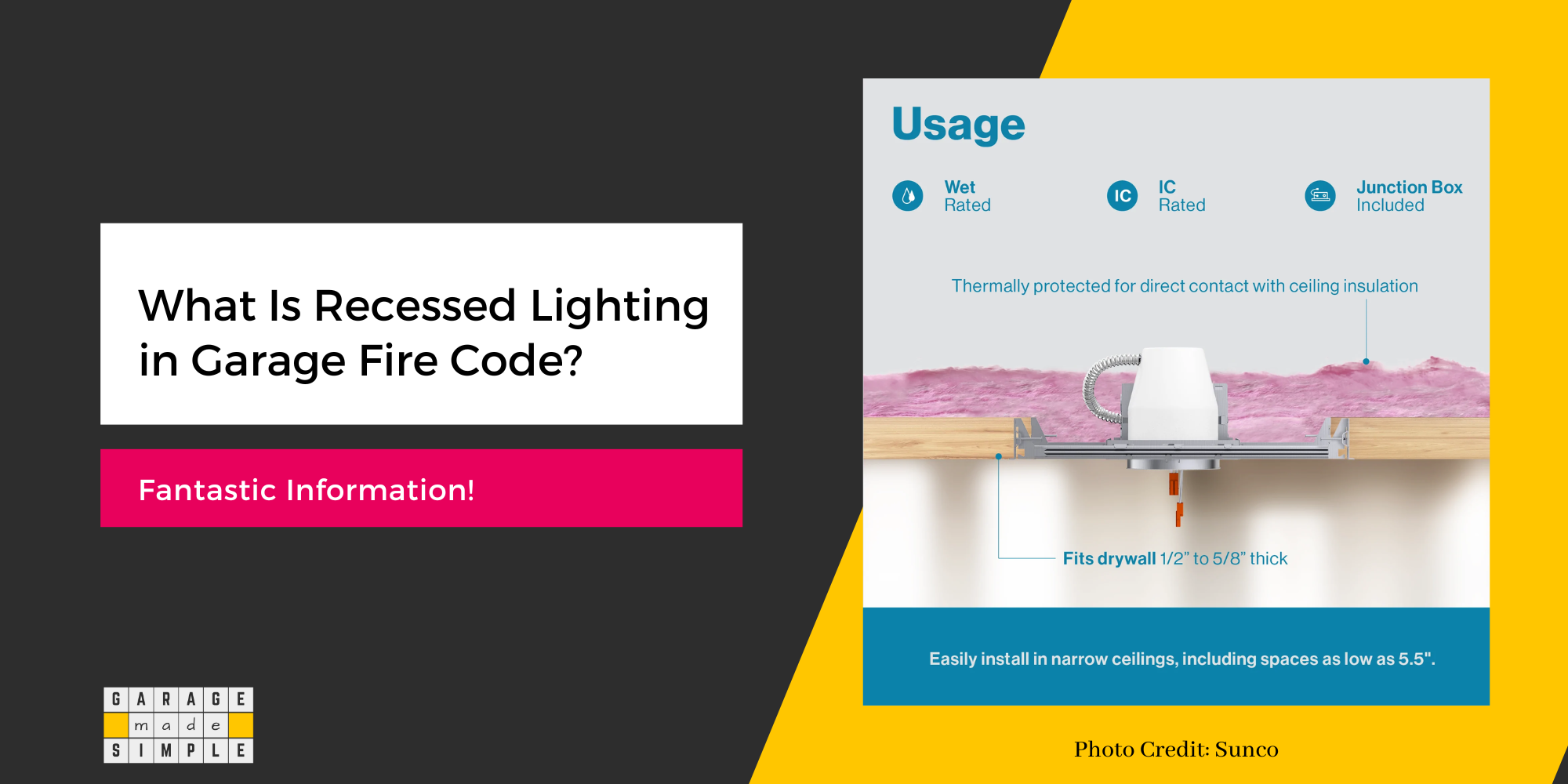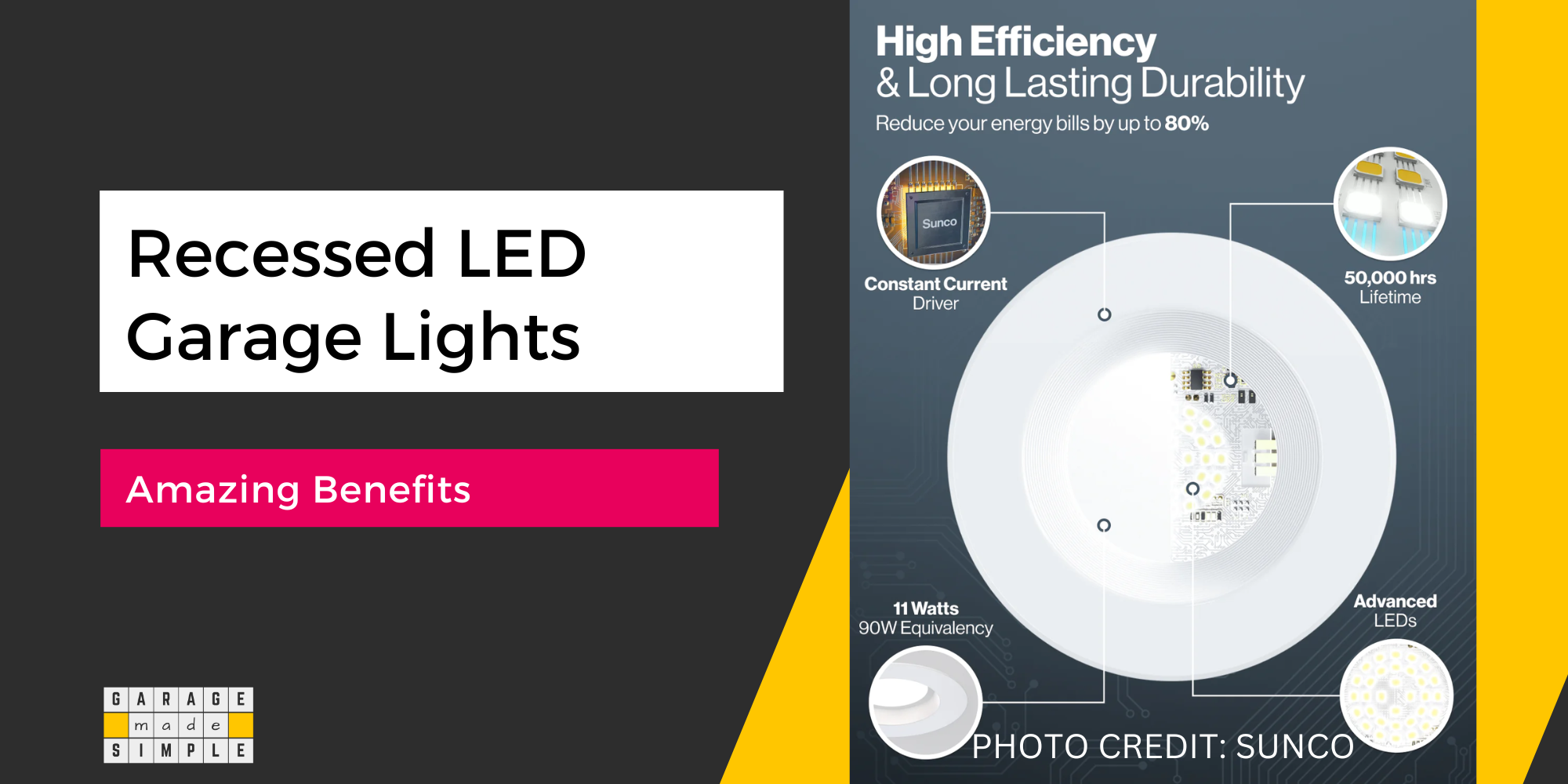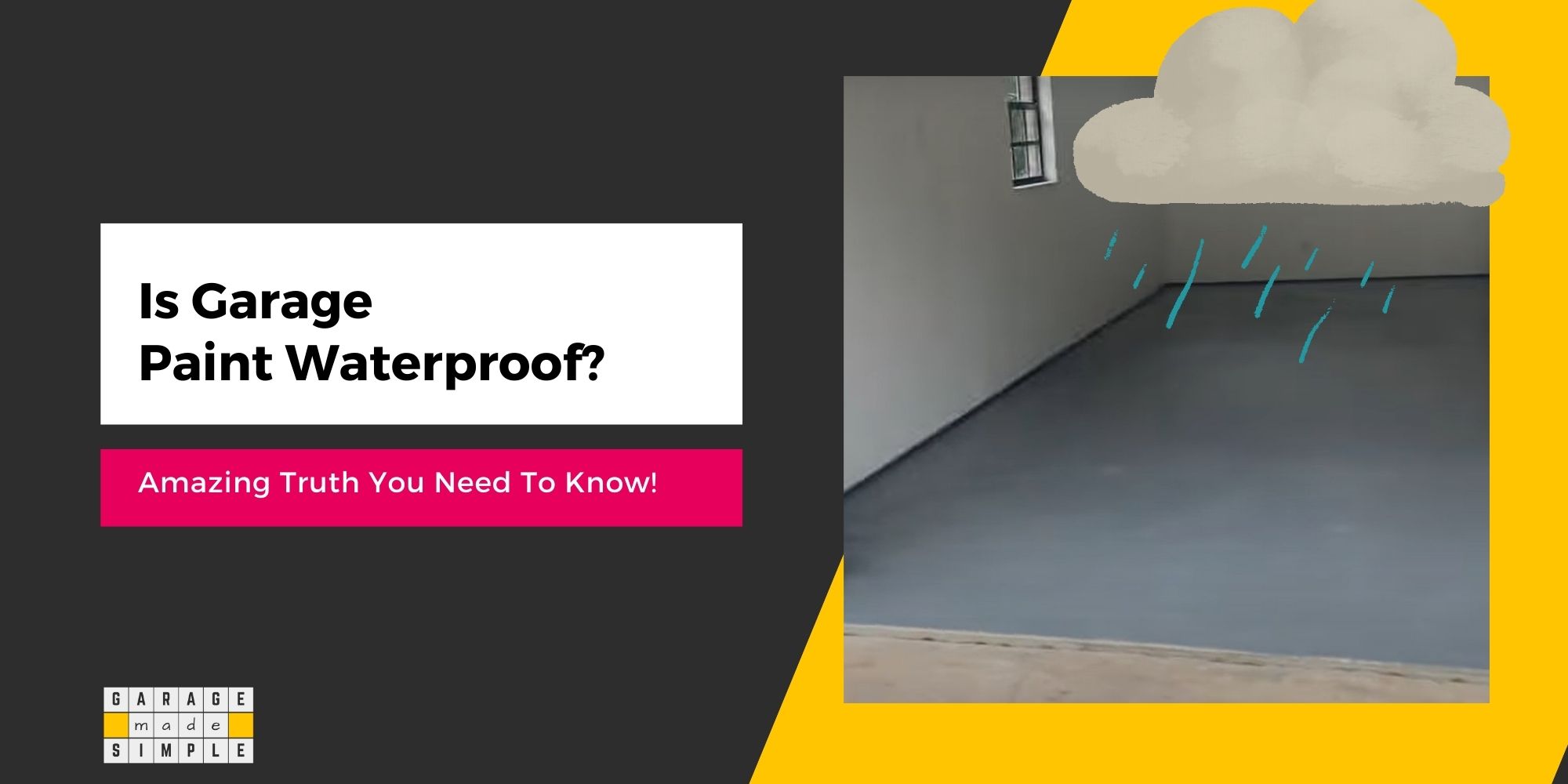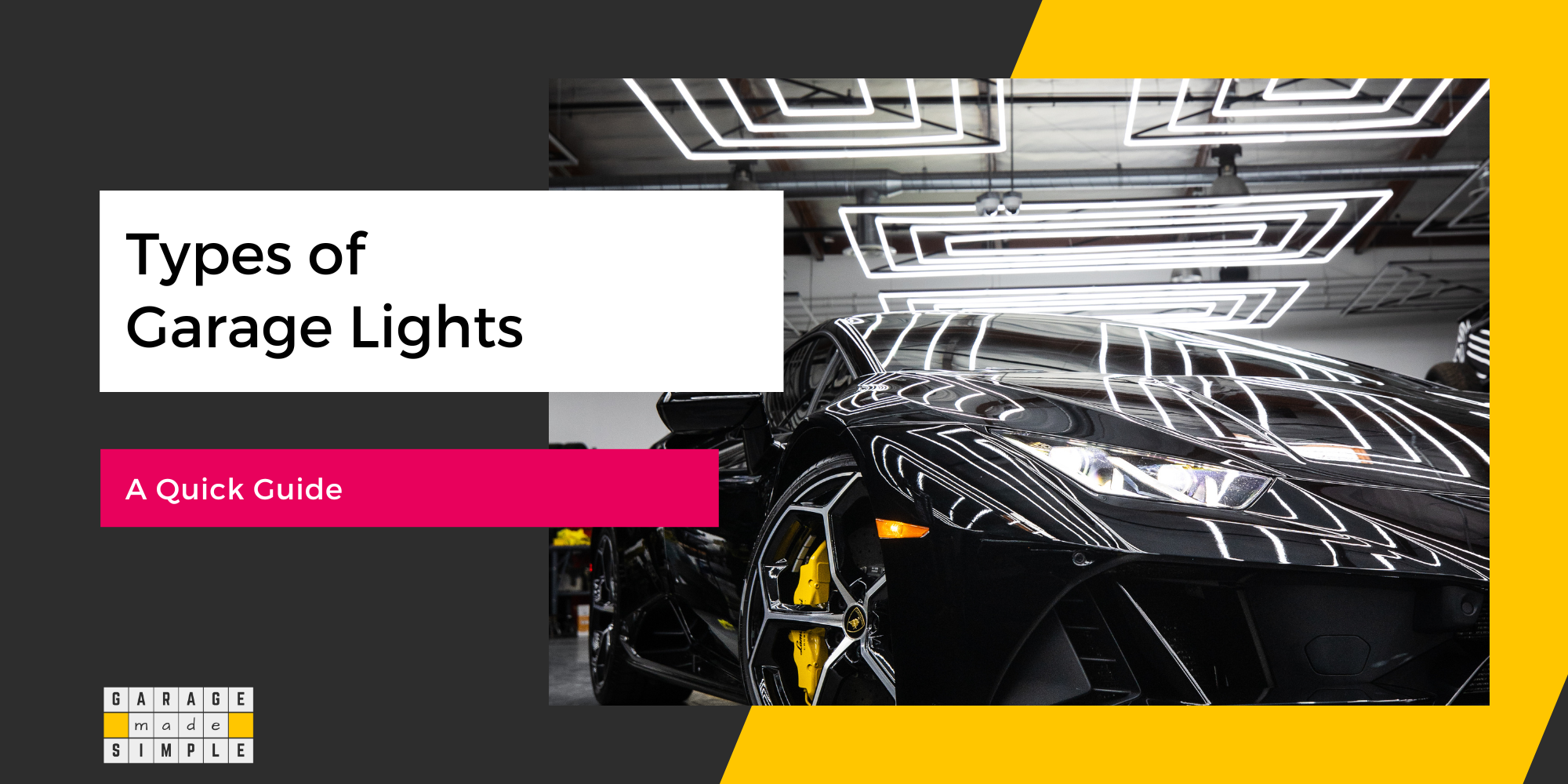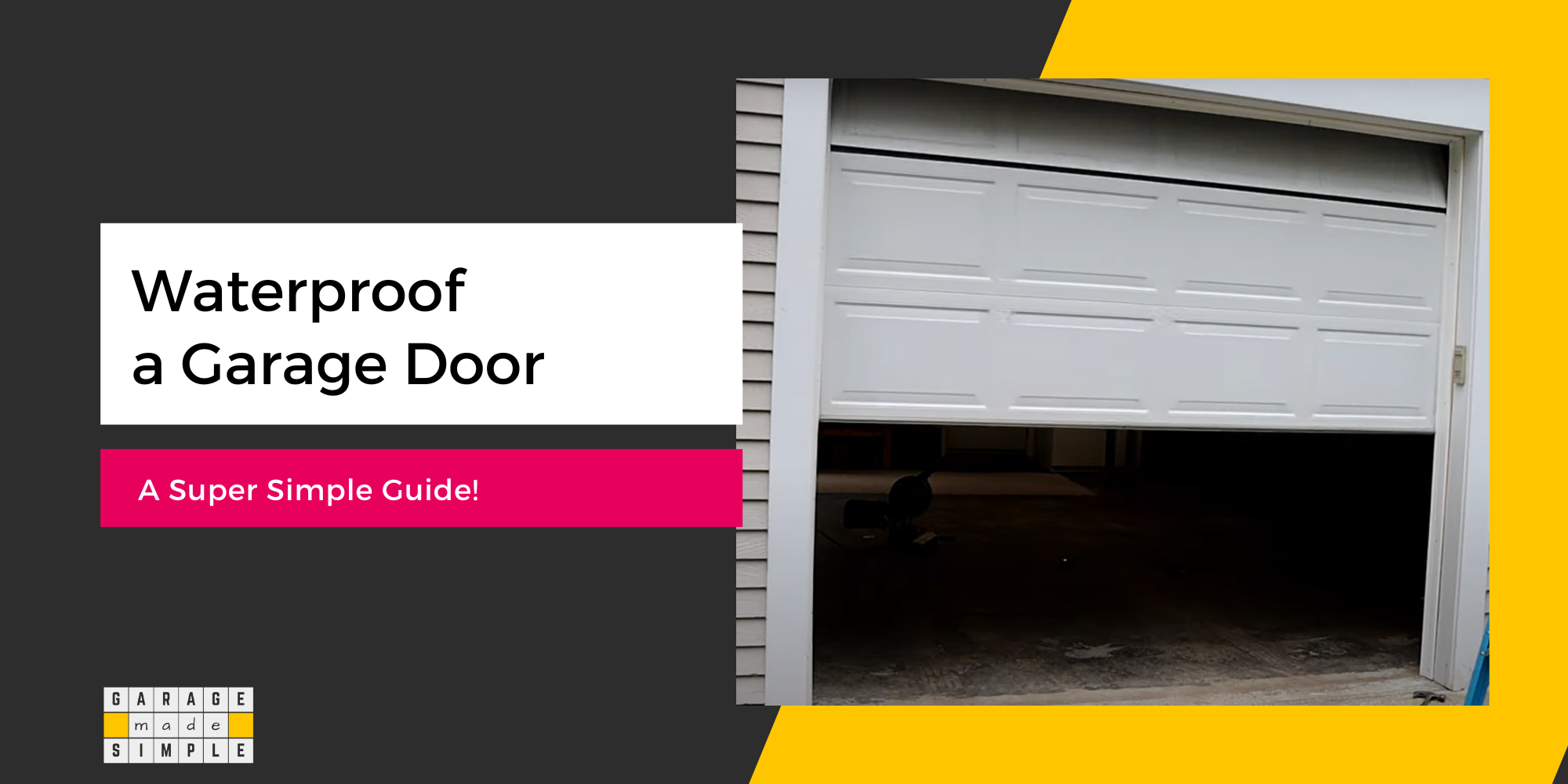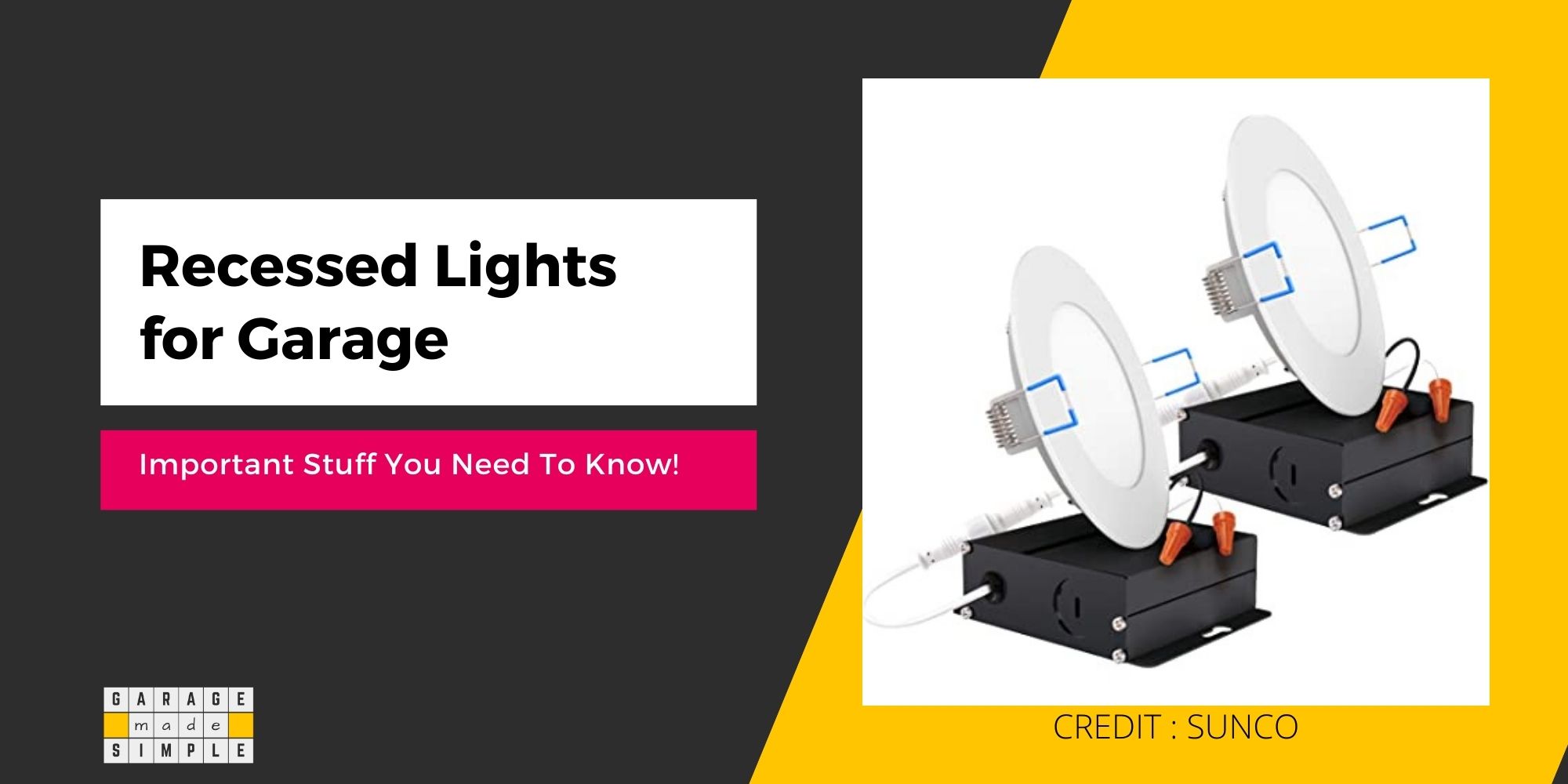10 Important Reasons Why You Should Waterproof Your Garage Floor!
As an Amazon Associate, I earn from qualifying purchases.
Should I Waterproof My Garage Floor?
A very important part of your garage is the floor. You need to ensure that it is durable and can take the wear & tear. There are garage floor paints, tiles & mats to protect the concrete. But is that enough? Should you waterproof your garage floor, too?
You should waterproof your garage floor to increase its life. A garage concrete floor is essentially a slab on grade. Concrete is very strong & durable, but it is also porous. Water ingress into the concrete floor, from above or below, can degrade its structural integrity and shorten its life.
If you do not waterproof your garage floor, you are, unknowingly, damaging the concrete in more ways than one. Actually there are 10 important reasons why you should waterproof your garage floor!

Waterproofing your concrete garage floor
- Compensates for the vapor barrier that was not placed before pouring the concrete slab on grade. (Placing a vapor barrier on top of the compacted base before the concrete mix is poured is an excellent way to prevent ground moisture from rising up through the concrete slab).
- Prevents wicking of water through the pores in the concrete floor. Moisture in the ground tends to wick through the concrete pores due to capillary action.
- Blocks water vapor permeation. Most garage paints are classified as Class 3 (vapor semi-permeable) vapor retarders. There is often a misconception that garage floor paint is waterproof. This is not true.
- Prevents condensation on garage floor from penetrating into the concrete. When outside temperature drops during the night or winter months, the garage floor can get quite cold. The water vapor in the garage may condense and penetrate into the concrete floor.
- Seals the larger concrete cracks caused by soil movement. Concrete always cracks due to shrinkage and changes in temperature. These are hairline cracks and not serious. However, larger cracks can develop due to soil upheaval and movement. Such cracks can get bigger, over the years, as water gets in them and goes through the freeze-thaw cycle.
- Contains rainwater and snowmelt water pools and stops water from entering the concrete pores. Garages are prone to flooding because of the wide garage door. In winter cars bring in snow that melts and drips water on the floor. And then you may wash your cars in the garage!
- Protects the concrete from damaging chemicals, such as deicing salt. During winter, snow on the car enters the garage. The snow melts, drips water on the floor which turns to ice during the cold night. If you use salt or any deicing agent, salt water, which is corrosive, penetrates the concrete.
- Makes the concrete stain resistant from automotive oil leaks or beverage spills. Oil, transmission fluid or antifreeze is unlikely to result in stains if the concrete floor is sealed.
- Reduces dust from crumbling concrete. The top layer of a concrete floor is the weakest as it is mostly cement. It gets abraded to dust quite easily. Water penetration into concrete keeps pushing up the cement to the top.
- Prevents the concrete from looking ugly due to efflorescence. Efflorescence is basically mineral salts. Water penetration into concrete can push these salts to the surface where they form unsightly white spots.
Does Sealing Concrete Make It Waterproof?
Sealing concrete with a good sealer will make it highly water resistant. The concrete will become almost waterproof. However, a concrete sealer can never be as effective as a waterproofing membrane.
A silane based penetrating concrete sealer is most effective when it comes to sealing the entire garage floor. However, for plugging large cracks & crevices in the concrete, you will need to use a concrete & masonry waterproofing compound.
What Should I Seal My Garage Floor With?
Concrete sealers are either “penetrating” or “topical”.
Penetrating Garage Floor Sealer
A penetrating Garage Floor Sealer is a clear low viscosity liquid. It is best to apply it with a low pressure spray. The sealer penetrates into the concrete pores (capillaries), fills them up, solidifies and forms a hydrophobic barrier. However, the penetrating sealer does not form any film on the surface.
A penetrating garage floor sealer is usually silicon based. It can either be a
- Siloxane Penetrating Sealer: Large particle size and less effective on dense concrete. Better suited for more porous substrates such as brick and stone.
- Silane Penetrating Sealer: Small particle size that can penetrate deep into even dense concrete such as concrete slab of a garage floor.
- Siliconate Penetrating Sealer: Smallest particle size providing the deepest penetration.
I recommend using Foundation Armor SX5000 Water Based Silane Siloxane Penetrating Concrete Sealer.
The sealer reduces the absorption of water by up to 95%. It protects concrete, from within, without changing the look or feel of the surface.
Topical Garage Floor Sealer
A topical garage floor sealer forms a clear film on the surface of the concrete. The film protects the concrete not only from abrasion but also from water seepage. For an industrial look concrete garage floor you could use the topical sealer as the topcoat.
What Are The Pros And Cons Of Sealing Garage Floor?
In fact there are a lot of pros and almost no cons of sealing a garage floor. They are listed below:
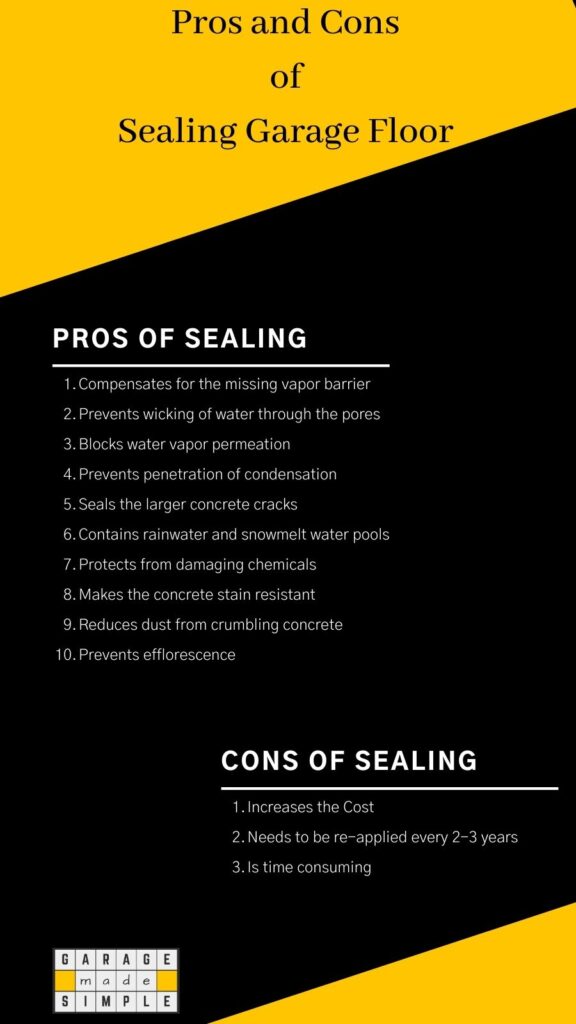
How Do You Waterproof a Concrete Garage Floor?
You will achieve a high degree of water resistance if you seal the concrete floor with a penetrating sealer and use a self leveling 100% epoxy coating such as Rust-oleum Rocksolid Polycuramine Garage Floor Coating.
Polycuramine Coatings combine the best of Polyurea, Urethane and Epoxy chemistries. This gives them a huge edge over Epoxy…and Polyurea for that matter.
However, if you want to really waterproof your garage floor you must use a waterproofing membrane. A vapor barrier should be placed over the base and before the concrete mix is placed.
After sealing the fully cured concrete floor a Liquid Rubber waterproofing system should be applied before the final garage paint is applied. The entire process is explained in my earlier blog post How To Waterproof Garage Floor? (A Simple 5 Step Guide!).
In a nutshell, to waterproof your garage floor:
Apply a coat or two of Liquid Rubber Multi-Purpose Primer on the bottom 6″ of the wall, the wall-floor joint and the concrete garage floor. The recommended coating thickness of the Multi-Purpose Primer is between 4-5 mils DFT with a spread rate of 200-250 square feet per gallon.
Apply 3-4 thick coats of Liquid Rubber Smooth Polyurethane Deck and Dock Coating on top, once the primer is dry. You can use a a brush, ⅜” nap roller or hopper style sprayer.
Liquid Rubber solidifies into a waterproof membrane. This can now be painted with Single Part Rustoleum Epoxy Shield Concrete Floor Paint using a ⅜” nap roller. This one part epoxy paint is self-priming and requires only one coat.
Thank you very much for reading the post. I do hope you found it informative and useful.

